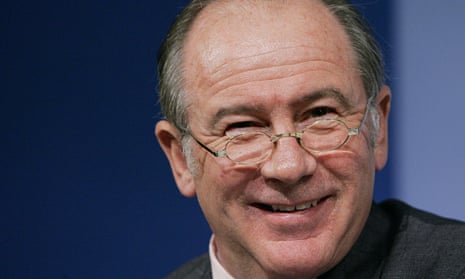Being “between Pinto and Valdemoro” is an old Spanish saying that refers to being in trouble. Now with the number of politicians being investigated for corruption in Spain nearing 2,000, including the mayor of that very Valdemoro town of lore, you could say that the whole Spanish political class finds itself between Pinto and Valdemoro. And it’s not just in the size of the problem but its timing. Embezzlement of public funds is never received with enthusiasm but if there were ever a moment at which Spanish public opinion was bound to react angrily to this seemingly inexhaustible series of corruption scandals, it’s now, after three and a half years of government-inflicted austerity.
Some of these corruption cases seem specifically designed to provoke outrage. Take the “black cards” affair. After having to cough up tens of billions of euros to save the disastrously managed savings banks, people have learned that board members of one of those banks were issued with “black” credit cards. This allowed them to spend as much as they wanted from the bank’s funds without paying tax. Among those involved were a former high official with the tax authority, and Rodrigo Rato, a former economics minister and former head of the IMF.
And this goes on week after week. At a certain point, the number of MPs under investigation in Valencia, one of the flashpoints of political corruption, made them the second “political force” in the regional parliament. In Andalusia more than 200 politicians and businessmen face charges in another investigation. Last week the entire leadership of the second most important business organisation in the country was summoned to court.
Unsurprisingly, a poll this weekend put the ruling People’s party in third place, the opposition Socialists, also tainted by corruption, were second. But the first slot went to the anti-establishment leftist Podemos, which is still in the process of formation.
You can tell a society has become impatient when it wants to vote for a party that is still choosing its platform. So is Spain a corrupt country?
Not exactly. Despite appearances, corruption is probably not widespread, but does recur in three crucial areas: the financing of political parties, boundary changes at the local level, and what is known as the “revolving door” phenomenon – politicians who, once they leave office, are appointed to the boards of semi-public or privatised companies.
These are things that could theoretically be tackled through regulation but the rigidity of Spain’s political system and the excessive power of the big parties has made it impossible. The People’s party and the Socialists have thrived in the environment they created, in which political organsations are heavily protected – a legacy of the time when Spanish democracy was weak. Both parties have enjoyed absolute majorities and have used them to shield themselves from scrutiny. This was made possible by the complacency of a highly polarised public opinion, always happy to engage in selective outrage: scandals that affect the other party are seen as proof of the corrupt nature of its ideology; scandals that affect one’s own party are, you know, “persecution”.
This is what has changed. Voters have become convinced that it’s not a matter of a few bad apples but of a rotten basket, that under the current system parties are incapable of reforming themselves and that only shock therapy would do.
The political situation in Spain is so fluid that, with a year before the next general election, it’s too early to tell whether Podemos will have a shot at governing, but the shock therapy is already at work. For the first time, the established parties fear their own electorate more than they fear that of their rivals. They are beginning to mumble apologies, something previously unknown in Spanish political oratory. It doesn’t sound convincing and it’s not followed by any real action – but new vocabulary has entered the public discourse. The mechanics have not changed but the semantics have. It’s a start.






